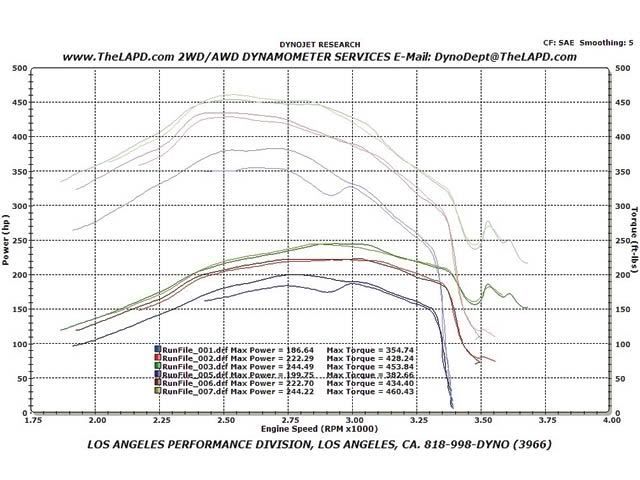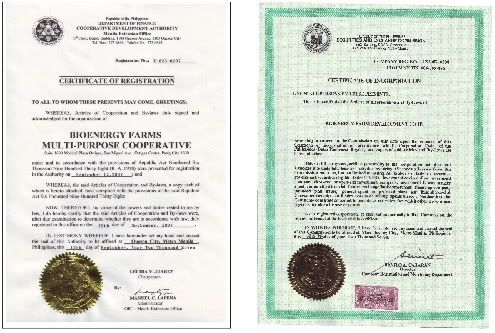Results 11 to 20 of 27
-
February 10th, 2008 05:26 PM #11
-
February 21st, 2008 01:05 PM #12[SIZE=3][size=5]University of Leeds Scientists Develop Process to Convert Biodiesel Byproducts Into Hydrogen Fuel[/size] [/SIZE][SIZE=3][/SIZE]
[SIZE=3]Scientists at the University of Leeds are turning low-grade sludge into high-value gas in a process which could make eco-friendly biodiesel even greener and more economical to produce. [/SIZE]
[SIZE=3][/SIZE]
[SIZE=3]Biodiesel “ motor fuel derived from vegetable oil - is a renewable alternative to rapidly depleting fossil fuels. [/SIZE]
[SIZE=3][/SIZE]
[SIZE=3]It is biodegradable and non-toxic, and production is on the up. [/SIZE]
[SIZE=3][/SIZE]
[SIZE=3]But for each molecule of biodiesel produced, another of low-value crude glycerol is generated, and its disposal presents a growing economic and environmental problem. [/SIZE]
[SIZE=3][/SIZE]
[SIZE=3]Now researchers at Leeds have shown how glycerol can be converted to produce a hydrogen rich gas. [/SIZE]
[SIZE=3]Hydrogen is in great demand for use in fertilisers, chemical plants and food production. [/SIZE]
[SIZE=3][/SIZE]
[SIZE=3]Moreover, hydrogen is itself viewed as a future • clean’ replacement for hydrocarbon-based transport fuels, and most countries currently reliant on these fuels are investing heavily in hydrogen development programmes. [/SIZE]
[SIZE=3][/SIZE]
[SIZE=3]The novel process developed by Dr Valerie Dupont and her co-investigators in the University's Faculty of Engineering mixes glycerol with steam at a controlled temperature and pressure, separating the waste product into hydrogen, water and carbon dioxide, with no residues. [/SIZE]
[SIZE=3][/SIZE]
[SIZE=3]A special absorbent material filters out the carbon dioxide, which leaves a much purer product. [/SIZE]
[SIZE=3][/SIZE]
[SIZE=3]“Hydrogen has been identified as a key future fuel for low carbon energy systems such as power generation in fuel cells and as a transport fuel. [/SIZE]
[SIZE=3][/SIZE]
[SIZE=3]"Current production methods are expensive and unsustainable, using either increasingly scarce fossil fuel sources such as natural gas, or other less efficient methods such as water electrolysis.” [/SIZE]
[SIZE=3][/SIZE]
[SIZE=3]“Our process is a clean, renewable alternative to conventional methods. [/SIZE]
[SIZE=3][/SIZE]
[SIZE=3]"It produces something with high value from a low grade by-product for which there are few economical upgrading mechanisms” says Dr Dupont. [/SIZE]
[SIZE=3][/SIZE]
[SIZE=3]“In addition, it’s a near ‘carbon-neutral’ process, since the CO2 generated is not derived from the use of fossil fuels.” [/SIZE]
[SIZE=3]Dr Dupont believes the process is easily scalable to industrial production, and, as the race towards the ‘hydrogen economy’(1) accelerates, could potentially be an economically important, sustainable “ and environmentally friendly •“ way of meeting the growing demand for hydrogen. [/SIZE]
[SIZE=3][/SIZE]
[SIZE=3]Dr Dupont" s research has been funded with a £270k grant from the Engineering and Physical Sciences Research Council (EPSRC) under the Energy programme, and is in collaboration with Professors Yulong Ding and Mojtaba Ghadiri from the Institute of Particle Science and Engineering, and Professor Paul Williams from the Energy and Resources Research Institute at the University. [/SIZE]
[SIZE=3][/SIZE]
Industrial collaborators are Johnson Matthey and D1-Oils.
-
February 24th, 2008 12:26 PM #13
The total number of shares are unlimited depending on the supply and demand. However as a basis, our 10 yr F4 (Food and Fuel Forest Farming) program is to develop 380,000 hectares nationwide. An average local farm is 50 hectares with a total farm shares units of 8,800 for subscription. Once its fully subscribed, another farm will be developed and so on and so forth.
Projected income when the farm is fully operational is set at 20-40% yield. Upon full operationalization because we are in farming and the trees are yet to bear fruits. First harvest is set in last quarter of 2009 or 1st quarter of 2010.
However, as a multi-purpose cooperative, we also are into consumer products and our projected 1st year dividend is set at 5% minimum. That is our yield while waiting for the farm to be profitable.
As for your other inquiries, I'd rather invite you to our office sir so our CEO could answer it to you at your full satisfaction.
-
February 24th, 2008 07:10 PM #14
Actually, before any of us go...
Where will the farm be located?
Do you have the necessary permits already? (DTI, DENR, etcetera?)
Even if you're starting as a cooperative, if you're selling shares, you still need to be registered.
Ang pagbalik ng comeback...
-
February 24th, 2008 10:51 PM #15
let's see if i get this business...
u need capital to buy farmland, buy equipment, plant trees, other expenses...
the capital will come from the public who will buy "farm shares".
Holders of farm shares will receive dividends only when u start making money.
u start making money only when u sell your harvest sometime in the future.
Tanong lang po...
Who is the buyer? Sure buyer ba?
Multinational oil company?
Like Fortune Tobacco will buy up someone's tobacco harvest
or Nestle will buy up someone's coffee bean harvest
-
 BANNED BANNED BANNED
BANNED BANNED BANNED

- Join Date
- Oct 2002
- Posts
- 3,790
February 25th, 2008 01:42 AM #16It is not that I am against it.... but isn't it kinda long way to go... from seeds to plant to fuel...
And nagtataka lang din ako, the yield of oil from our coconuts would be nearly similar isn't it? If the plant is not common in Philippines, wouldn't it pose a danger to the ecological balance ng halaman sa Pinas (much like the golden kuhol nung dati?)
We a similar family plant ng jatropha:
(image from wikipedia)

Napakaprone nito sa aphids.
Oh, With regards sa finish product na biodiesel, I haven't seen any dyno test done on the car using the product?
-
February 25th, 2008 08:44 AM #17
Sounds familiar? All promises yet no documentation.
A little healthy skeptic questioning might go a long way.
-
February 25th, 2008 09:06 AM #18
Maybe this would be interesting for the other people reading this thread.
The same fellows behind this "investment project" is also behind this product.
http://tsikot.yehey.com/forums/showthread.php?t=47022
You be the judge.
-
February 26th, 2008 02:22 PM #19
-
February 26th, 2008 06:17 PM #20
[SIZE=3][SIZE=3]Ok, you are right in a way that the projected yield would eventually be achieved upon full operationalization of the farm. On that time, fruit bearing capabilities of the trees (mango, jatropha and moringa) are nearly or are already maximized, jatropha seeds are processed into biodiesel and CDM carbon credits could then be applied.[/SIZE]
[SIZE=3]As per the buyer, if we refer to the Biofuels Act of 2006, all oil companies are required to buy and blend biodiesel on their fossil fuels. Meaning, they are required by law to buy the biodiesel products provided that these biodiesels pass the regulatory standards set by National Biofuels Board under DOE. So if you’re asking if there are sure buyers then you are absolutely right and it is mandatory on their part. [/SIZE]
[SIZE=3][SIZE=3]Yes, you're right that it will take time for it to be usable if we plant just now but much worst if later. [/SIZE][SIZE=3]Let it be known here that jatropha plants are not utilized to compete with coconut but used to help satisfy the market demand for biodiesel. And as with the food vs fuel debate, jatropha presents a better alternative than coconut because coconut is better used for food and medicinal purposes. [/SIZE]
[SIZE=3]Jatropha curcas is a native plant known as tuba tuba, tubang bakod, tagumbao among others and have been used by natives as medicinal plant, alternative lamps and other purposes for ages. Its just a pity that its usefulness is only considered and become known to the general public now and so most people think this is a new breed of plant here in the Philippines. Which reminds us how we treat ampalaya before and malunggay now. [/SIZE]
[SIZE=3]The one you posted above is a Jatropha integerrima and totally different in application and use to Jatropha curcas. Jatropha curcas leaves are insect and pest repellant and that’s also why its commonly used as fence in farms because even stray animals stay away from it.[/SIZE]
[SIZE=3]The National Biofuels Board in the Philippines and its counterpart around the world have their own set of regulatory standards for biodiesels and I don’t think dyno test are required whereas laboratory tests on the components of the biodiesel is already sufficient. It’s a common understanding that biodiesel is an alternative fuel rather than a performance enhancer additive although emmission tests shows that it is a cleaner fuel. However, please refer to the link below and the test data regarding dyno test done at B99 blend.[/SIZE]
[SIZE=3]http://www.dieselpowermag.com/tech/g...sel/index.html[/SIZE]


[SIZE=3][SIZE=3][SIZE=3]Hmm… I guess you’re up here to say that biodiesel is a scam too. I was looking for the thread in Top Gear but unfortunately its already removed without my knowledge. I’ll let it pass for now as you have said its just one of our products. I just find it ironic for Petron who came out with a fully synthetic fuel additive earlier and are now advertising that Petron XCS has an all organic fuel enhancer additive making it more powerful. I can just assume that it’s a scam too. [/SIZE]
[SIZE=3]Anyway, that is another issue so I’ll let it rest for now. Thanks for making this thread interesting though! [/SIZE]





 Reply With Quote
Reply With Quote [/SIZE]
[/SIZE]




Somewhat expected from a rushed car from a first time carmaker
Xiaomi E-Car